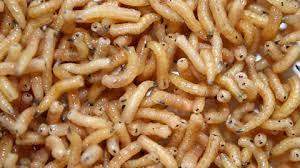Insect Feed Market future outlook with rising demand for protein alternatives

The insect feed market is entering a transformative era, propelled by the rising global demand for alternative protein sources. As traditional livestock feed components such as soymeal and fishmeal face sustainability challenges, insect-based feed is emerging as a critical solution. The shift toward sustainable animal nutrition is redefining how poultry, aquaculture, and livestock industries approach feed production, creating significant growth opportunities for insect-derived products worldwide.
Growing Demand for Protein Alternatives
Global protein demand is increasing due to population growth, urbanization, and changing dietary preferences. Traditional protein sources are under pressure from environmental constraints, rising costs, and supply chain disruptions. Insect feed, rich in high-quality proteins, amino acids, and essential nutrients, offers an efficient and eco-friendly alternative.
Black soldier fly larvae (BSFL), mealworms, and crickets are among the primary insects used for feed production. Their ability to convert organic waste into nutrient-rich biomass positions insect feed as a sustainable alternative for industries seeking to reduce environmental impact and improve production efficiency.
Future Market Drivers
1. Sustainability and Environmental Concerns
The livestock sector faces criticism for its carbon footprint and heavy reliance on natural resources. Insect farming requires far less water, land, and feed compared to traditional crops and fishmeal. This eco-friendly production process will be a major driver of insect feed adoption in the future.
2. Rising Aquaculture and Poultry Production
As the global consumption of fish, poultry, and meat continues to grow, the need for alternative feed sources will expand. Insect feed, with its high digestibility and nutritional profile, is well-suited for aquaculture and poultry industries aiming for cost-effective growth.
3. Government Support and Regulatory Progress
Several countries are implementing favorable policies and providing funding for insect feed production. Regulatory approvals for insect-based ingredients in livestock and aquaculture feed are becoming more streamlined, paving the way for large-scale commercialization.
Technological Advancements Shaping the Future
Technological innovations are accelerating the scalability of insect feed production. Automated insect farming systems, AI-driven monitoring, and precision feeding technologies are helping producers maintain consistent quality and optimize yields. Furthermore, modern processing techniques allow for the creation of specialized insect protein powders, defatted meals, and oil extracts tailored for specific livestock needs.
Biotechnology is also playing a role in enhancing the nutritional value of insect feed. Genetic research and improved breeding methods ensure faster growth cycles and improved feed conversion rates for insects, making production more efficient and cost-effective.
Market Opportunities
The insect feed market’s future outlook is supported by expanding opportunities in various sectors:
-
Pet Food Industry: Insect-based proteins are increasingly being incorporated into premium and hypoallergenic pet food formulations.
-
Aquaculture: Insect feed is proving to be a sustainable substitute for fishmeal, helping reduce overfishing concerns.
-
Poultry and Swine: Farmers are turning to insect feed for better animal health, growth, and cost efficiency.
-
Organic and Specialty Farming: Insect proteins are gaining traction among organic farmers seeking natural feed solutions.
Economic Benefits and Cost Efficiency
Insect feed production is highly resource-efficient, leading to lower production costs over time. By utilizing organic waste streams as feedstock, producers can reduce raw material expenses. Moreover, the shorter life cycles of insects, coupled with high reproduction rates, make scaling operations more feasible compared to conventional feed ingredients.
This cost-effectiveness, paired with growing demand for sustainable feed, is attracting investments from both private and public sectors. Startups and established feed manufacturers are forming strategic alliances to build large-scale insect production facilities and secure a competitive edge.
Challenges to Overcome
While the outlook remains positive, the industry must address certain challenges:
-
Consumer Awareness: Educating farmers and end-users about the benefits of insect feed remains critical for adoption.
-
Regulatory Harmonization: Inconsistent regulations across regions can slow down market expansion.
-
Scaling Production: Meeting global protein demand requires substantial investment in large-scale, automated insect farming infrastructure.
Overcoming these challenges will require collaboration among governments, producers, and industry stakeholders to create standardized quality and safety protocols.
Future Outlook
Looking ahead, the insect feed market is expected to witness double-digit growth rates over the next decade. Its alignment with the global sustainability agenda, coupled with rising demand for protein alternatives, positions it as a game-changer in livestock and aquaculture nutrition.
Companies that invest in innovation, build sustainable value chains, and expand their global presence will lead this transformation. By 2030, insect feed could become a mainstream ingredient, reshaping how the world feeds its animals while reducing environmental strain.
- Art
- Causes
- Crafts
- Dance
- Drinks
- Film
- Fitness
- Food
- Jogos
- Gardening
- Health
- Início
- Literature
- Music
- Networking
- Outro
- Party
- Religion
- Shopping
- Sports
- Theater
- Wellness


